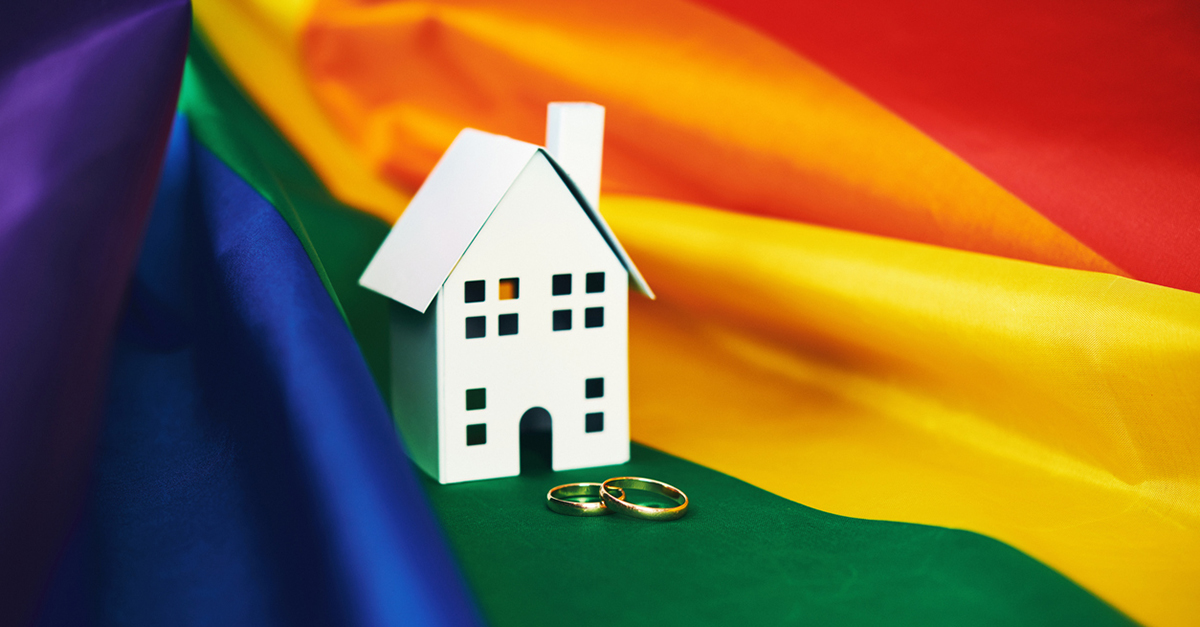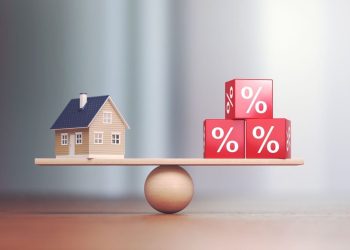The LGBT community is largely holding back from homeownership, according to a recent survey conducted by Freddie Mac in collaboration with Community Marketing and Insights, which polled 2,313 LGBT community members in the U.S. aged 22-72. In fact, compared to the national average of 64.3 percent, only 40 percent of LGBT households are likely to own a home. Within the LGBT community, gay men and lesbians are the most likely to own (52 percent), while LGBT African Americans and millennials are the least likely homeowners (30 percent and 23 percent, respectively).
“We fielded this survey to get a better understanding of the current challenges facing the LGBT community, as well as their current housing choices, preferences, experiences and aspirations,” says Danny Gardner, senior vice president of Affordable Lending and Access to Credit at Freddie Mac. “What we found was that several factors—including increased mobility, lower marriage and a tendency to live in high-cost urban areas, and fears of discrimination—may be contributing to these lower homeownership rates.”
John Graff, broker and CEO of Ashby & Graff Real Estate, and policy committee chair with the National Association of Gay & Lesbian Real Estate Professionals (NAGLREP), says it’s a tale of two cities when it comes to members of the LGBT community and their involvement in real estate.
“On the one hand, people in the community—especially gay men—tend to do well in real estate because of the dual income and the traditional lack of children,” says Graff. “But there are institutional obstacles that prevent members of the community from buying. When you look at transgender individuals, for example, the opportunities are not replicated at the same level as for white heterosexual people in this country. It’s difficult for us to emphasize buying power and mention and highlight the obstacles that exist in the community at the same time.”
What Obstacles Are Standing in the Way?
A top concern, fear of discrimination remains a rampant challenge in the homeownership space for members of the LGBT community. Despite positive LGBT-member sentiment in relation to homeownership—72 percent of renters stated they’d like to own a home in the future and three-quarters of LGBT renters believe that homeownership is a good financial investment—the priority remains feeling safe by living in LGBT-friendly neighborhoods.
Nearly half of LGBT renters (46 percent) fear discrimination during the home-buying process. The top must-haves for these consumers? While home price and safety rank the highest, an LGBT-friendly neighborhood drops in as the No. 3 priority.
In addition, LGBT members may be more fluid in their living habits, relocating more frequently than other segments of the population. The survey found that 67 percent of respondents do not want to live in the same area they grew up in, a rate that is above the national average.
Lastly, affordability and the complexities of down payment-related costs play a role. Seven in 10 LGBT renters said saving for a down payment is a challenge. And much like the overall population, LGBT renters are not aware of low-down payment options, believing that the required deposit goes above the 20 percent mark.
“Unfortunately, the rising cost of renting and buying, combined with misunderstandings about down payments, are slowing homeownership rates among the LGBT community even further,” says Gardner. “That is why as an industry—lenders, appraisers, agents, home builders and Freddie Mac—must understand LGBT housing needs, recognize their challenges and educate them on the buying process.”
Education and Regulatory Protections as Solutions
Could a stronger emphasis on education help fill this gap and inform LGBT buyers of the home-buying resources available to them? Jeff Berger, founder of NAGLREP, believes so.
“Our own LGBT Real Estate Report found that while LGBTs tend to live in markets where home prices are high, the real estate industry should be working to provide more targeted education to the LGBT community about the buying and mortgage process,” says Berger. “This is a very important and timely survey. Freddie Mac has taken a leadership role to help shed light on the challenges the LGBT community faces in building financial security through homeownership.”
Berger adds that two Congressional bills—H.R. 1477 and the Equality Act—would help provide federal protections against discrimination based on sexual orientation and gender identity.
 Liz Dominguez is RISMedia’s associate content editor. Email her your real estate news ideas at ldominguez@rismedia.com. For the latest real estate news and trends, bookmark RISMedia.com.
Liz Dominguez is RISMedia’s associate content editor. Email her your real estate news ideas at ldominguez@rismedia.com. For the latest real estate news and trends, bookmark RISMedia.com.











